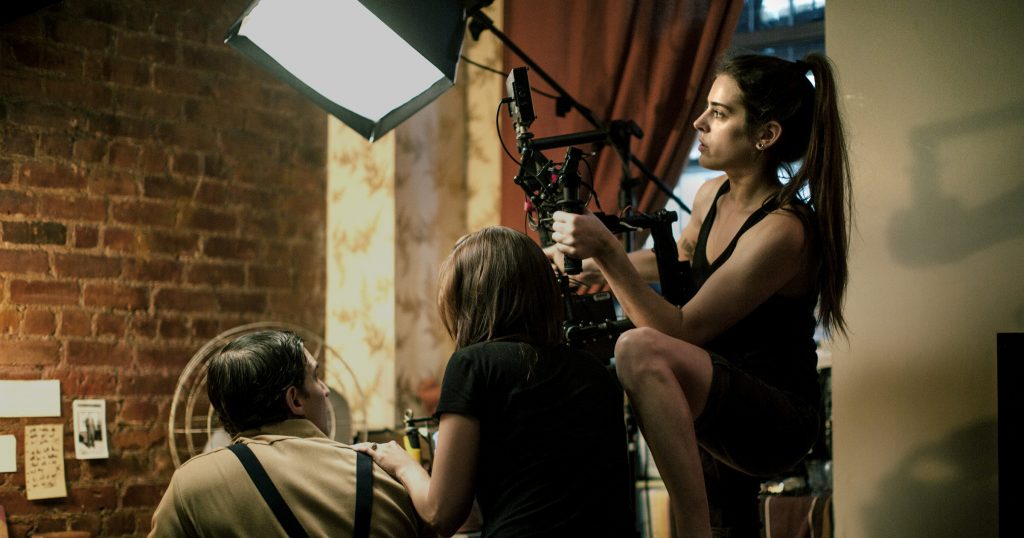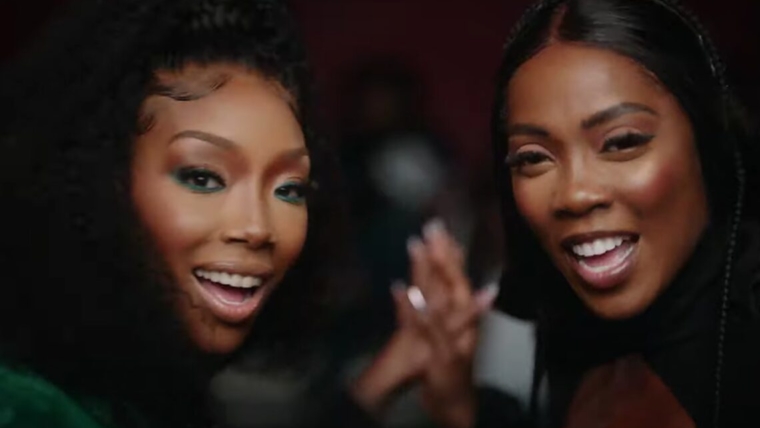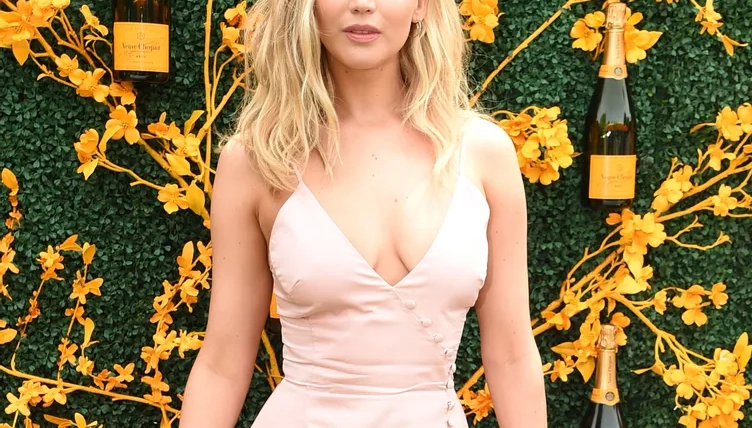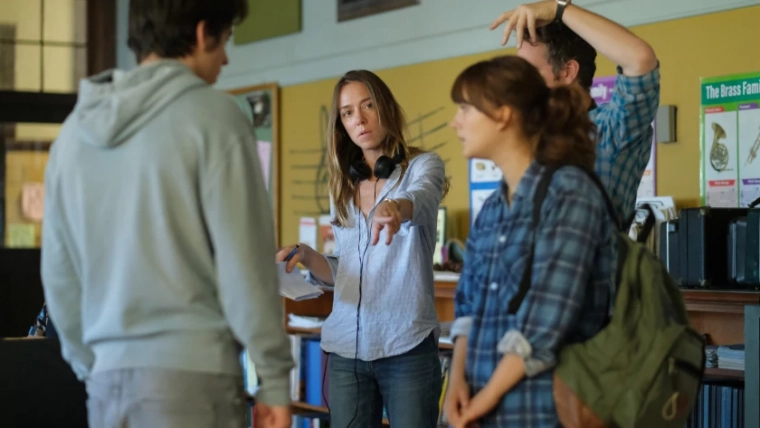
The Best Advice We’ve Gotten from Women in Filmmaking
We’ve talked to some incredible women on our blog: directors, DPs, acting coaches, animators, Oscar Nominees, creative directors, artists. They’ve shared illuminating, perspective-shattering advice that any filmmaker can take to heart. Today we’re celebrating some of the wise women we’ve talked to on our blog by pulling some of our favorite moments from their interviews. Reader beware: the topics are all over the place — from storytelling to panic attacks — but we think that speaks to the overwhelming amount of great advice we’ve received over the years. Enjoy.
Director Elle Ginter on Getting Started
The first step was to build a body of work — not just for other people to see, but for myself. So I could know if I’m even capable of directing. So I could make sure this is something I love to do. I knew I needed at least three or four really strong pieces if I were going to be taken seriously. So I made that my goal over the next two years. And then I started inviting people to work on these projects with me. I didn’t need the most experienced people. I didn’t want to wait for that. I invited people I already knew. I made sure there was something in it for them. Something for their reel or just the experience itself. After about a year, I have an amazing crew who loves working together. Now I don’t ever feel like I’m asking someone for a favor when they’re working on a project for me. I make sure that, on my set, everybody gets something out of it.
Director/DP Reed Morano on The Long Haul
I think you have to be prepared that nine times out of ten, it’s going to take a very long time to get where you want to go. Overnight success is rare and possibly a myth. I love filmmaking so much; it didn’t really matter. I didn’t notice the time passing. I didn’t mind working as a hedge fund secretary or a temp, and then taking time off when I knew there was going to be a shoot. And I didn’t mind working for free because I’d finally found the job I love. In order to keep working as much as possible, you have to be an optimist. If you’re a pessimist, you’re not likely to make it, or it will just totally suck while you’re getting there.
Directing Coach Adrienne Weiss on Panic Attacks
I once got an outstanding piece of advice from my Buddhist teacher that has been enormously helpful. I was about to direct my first feature, and a day or two before the shoot, I woke up in a cold sweat. I was having a panic attack. All I could think about was how it could go wrong. And that’s when this advice really sunk in: “Always rely on a happy mind alone.” Which means, basically, trust a peaceful, calm mind. Don’t trust an agitated mind. If you’re having a problem and there’s something you can do, then just stay peaceful and take the steps you need to take. If there’s nothing you can do, then there’s no reason to be agitated. It’s such powerful advice.
Most creative people I know — certainly people in the film world — feel this tension to do something good. We live in that state of tension all the time, mistakenly believing the tension is helping us, when really it’s just blocking our creativity. So that’s what I reminded myself when I started having that panic attack: my main job is to stay peaceful and take the actions I need to take.
DP Autumn Durald on Perfection
One thing I saw a lot at film school — and I did this myself — was being too particular, focusing too much on making things look pretty and not on telling a story. Your work has to come from inside you. You have to have a unique perspective. What makes for amazing cinematography is when you and the director are both bringing your unique perspectives when you work together. Sometimes these young DPs — especially with digital cameras — try too hard to make things look perfect, and they don’t consider the story. Everything is starting to look the same. You have to put yourself into the work, you have to have confidence and not be insecure. The same is true for directors. The best directors are the ones that put everything out there, and you feel it when you watch their work. My advice is to try anything, don’t be afraid to make mistakes. That’s how you learn what you like and don’t like.
DP Laura Merians on Perception
I’m delving into a narrative world now and starting to think about the way things hold meaning. I think a lot about the symbolic communication of light. I believe, in many ways, that light is as important as dialogue. They are both integral parts of the story. They both have meaning. Every object, every color, every detail — it all tells a story. For me, philosophy and filmmaking have a lot of similarities. You’re trying to communicate something. You’re trying to explore a subject or find meaning. As a filmmaker, I’m constantly trying to find the deeper meaning, or at least approach things from the infinite possibility of perception. I think a lot about how we perceive things — real things or fake things — and how that plays with people psychologically.
Perception is a slippery slope. It is, by definition, subjective. What people see in the world might not be real. That, to me, is what’s exciting about the medium of film. How can you play with the way the audience sees the world? Film allows you to direct perception. There’s tremendous power in that. And a lot of fun.
Director Hazuki Aikawa on Ignorance
I don’t believe anything is off limits. There are no limits. But as a rule for myself, I never want to make something that’s ignorant. I never want to offend people simply because I’m ignorant about a subject. It would also be very hard for me to make a film if I didn’t understand my main character. For example, the main character of Reflection [her recently released short film] is not the gender nonconforming boy. It’s the mother. I can relate to her because I’m also a mother. That’s why I don’t consider it an LGBT film.
I don’t think people have to write what they know. I believe people can write anything they want. They just need to be aware of the consequences.
DP Rachel Morrison on Confidence
Especially as a female DP when there are so few of us, you need to have faith that you know your shit. If you’re confident, people will treat you with respect. If you’re thoughtful about the work you do, you’ll succeed. You just need to accept that you’re going to get second-guessed a lot. That’s the nature of the game. Be confident in your decisions and you’ll be fine. The second you start to waver, though, the second you start to second-guess yourself…there’s no time for indecision in this industry. As long as you are kind and courteous and know your shit, you will eventually rise to the top.
Producer Zanah Thirus on Writing Around A Budget
When I’m writing, I write specifically for the story. If I need to shave down the idea once I have it on paper then I can produce from there. But I don’t mix the two. There are scripts that I’ve written that I don’t have the means to produce, so I don’t. There are scripts that I’ve written where I’m like, “Ok, this is tangible.”
Producer Sarah Schutzki on Negotiating Production Budgets
If you’re submitting a bid, get as many quotes as possible and confirm as many rates as possible. Then, once you have an accurate number, you can bump up some of your budgets just in case something goes up or down. I’d much rather have a surplus than a shortage. As long as it’s within reason, the client will get that money back in the end anyway.
Editor Anne V. Coates on Working Under Pressure
It’s just the same. You just take it sequence by sequence. It’s not really very different. Obviously, you’re going to take a little bit more time, and you have more material to choose from, but you should remain calm at all times. If you’ve got a whole heap of material coming in, just take it step-by-step; work out in your mind what you want to get out of a scene. Whether you’ve got thousands of feet or five feet, it’s the same thing.
Producer Amanda Riley on Staying Fearless
There were times in my career that I didn’t know that I wasn’t supposed to be able to do something, so I just did it. It actually makes for great creative. If you don’t know what you’re not supposed to be able to do, it opens up so many possibilities.







